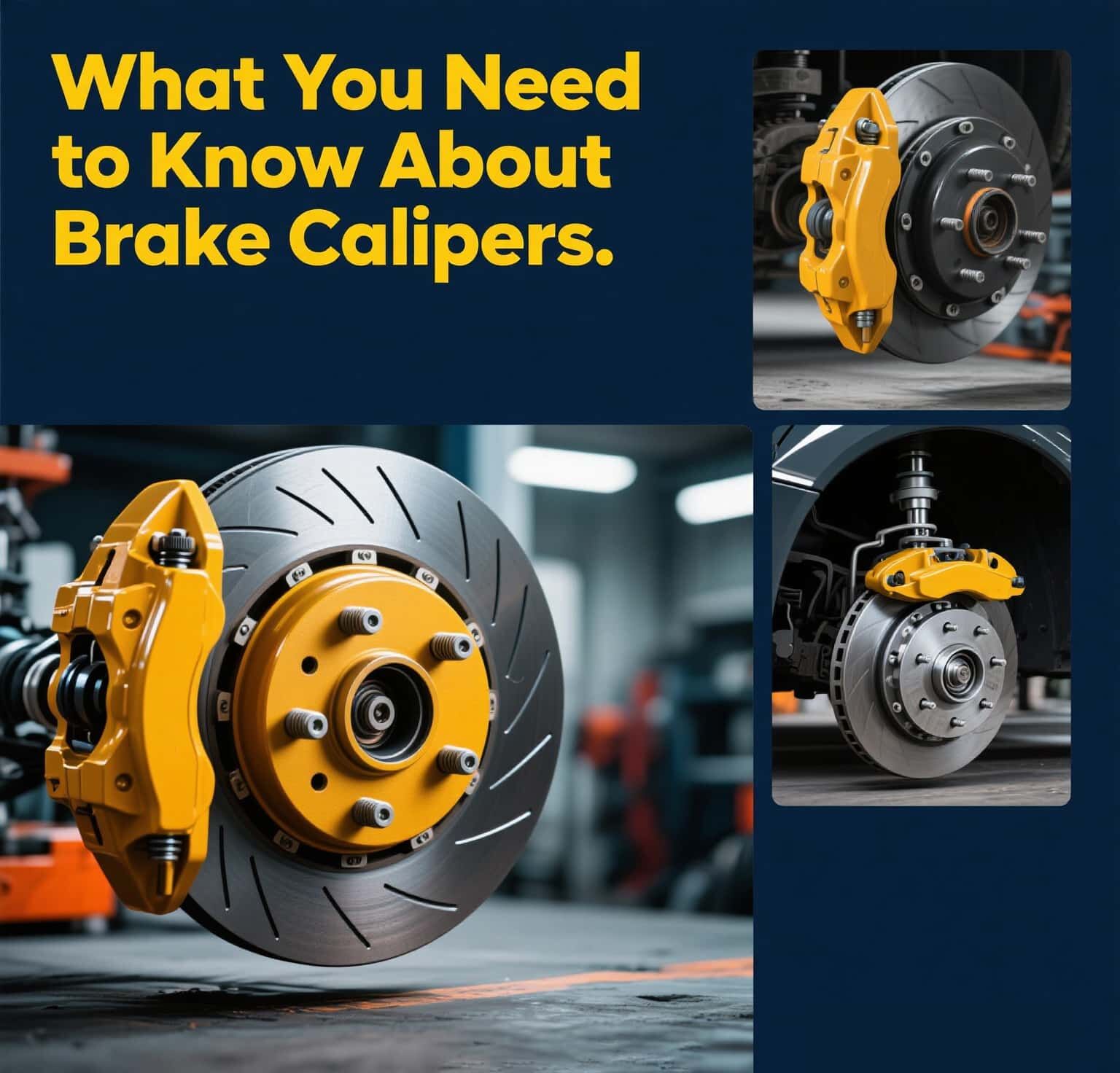Brake calipers are essential components of a vehicle's braking system, playing a pivotal role in ensuring safety and performance.
Understanding their function, types, and maintenance is crucial for any vehicle owner. In this article, we will explore the intricacies of brake calipers, including how they work, the different types available, common issues, and tips for maintenance to ensure optimal performance.
Brake calipers are responsible for clamping the brake pads against the rotors to create the friction necessary for stopping the vehicle.
They operate through hydraulic pressure, which is generated when the brake pedal is pressed. This pressure forces the calipers to squeeze the pads against the rotors, effectively slowing down or stopping the vehicle. The efficiency of this process is paramount, as any malfunction can lead to reduced braking power and increased stopping distances.
There are primarily two types of brake calipers:
floating and fixed. Floating calipers are designed to move slightly to accommodate uneven wear on the brake pads and rotors. They are typically lighter and less expensive, making them common in many vehicles. Fixed calipers, on the other hand, do not move and provide more consistent pressure across the pads, resulting in better performance. Understanding the differences between these types can help vehicle owners make informed decisions when it comes to replacements or upgrades.
Common issues with brake calipers include sticking, leaking, and uneven wear of brake pads.
A sticking caliper can cause the vehicle to pull to one side while braking, which can be dangerous. Leaking brake fluid can lead to decreased braking performance, and uneven wear can indicate problems with the caliper or the brake system as a whole. Regular inspections and maintenance are essential to identify these issues early and ensure the longevity of the braking system.
To maintain brake calipers effectively, vehicle owners should follow a few simple steps.
Regularly check the brake fluid level and quality, as contaminated fluid can lead to caliper failure. Inspect the calipers for any signs of rust, wear, or damage. Additionally, replacing brake pads at the appropriate intervals can help prevent uneven wear and prolong the life of the calipers. If any issues are detected, it is advisable to consult a professional mechanic to address the problem promptly.
In conclusion, understanding brake calipers is vital for vehicle safety and performance.
By knowing how they work, the types available, common issues, and maintenance tips, vehicle owners can ensure their braking systems remain in top condition. As technology advances, we can expect to see innovations in brake caliper design, such as improved materials and more efficient hydraulic systems, enhancing overall vehicle safety and performance. Keeping abreast of these trends will help vehicle owners make informed decisions about their braking systems and ensure they are always driving safely.
Table of Contents
- Brake calipers are essential components of a vehicle's braking system, playing a pivotal role in ensuring safety and performance.
- Brake calipers are responsible for clamping the brake pads against the rotors to create the friction necessary for stopping the vehicle.
- There are primarily two types of brake calipers:
- Common issues with brake calipers include sticking, leaking, and uneven wear of brake pads.
- To maintain brake calipers effectively, vehicle owners should follow a few simple steps.
- In conclusion, understanding brake calipers is vital for vehicle safety and performance.




